UK economic growth slows to 0.4% in first quarter
- Published
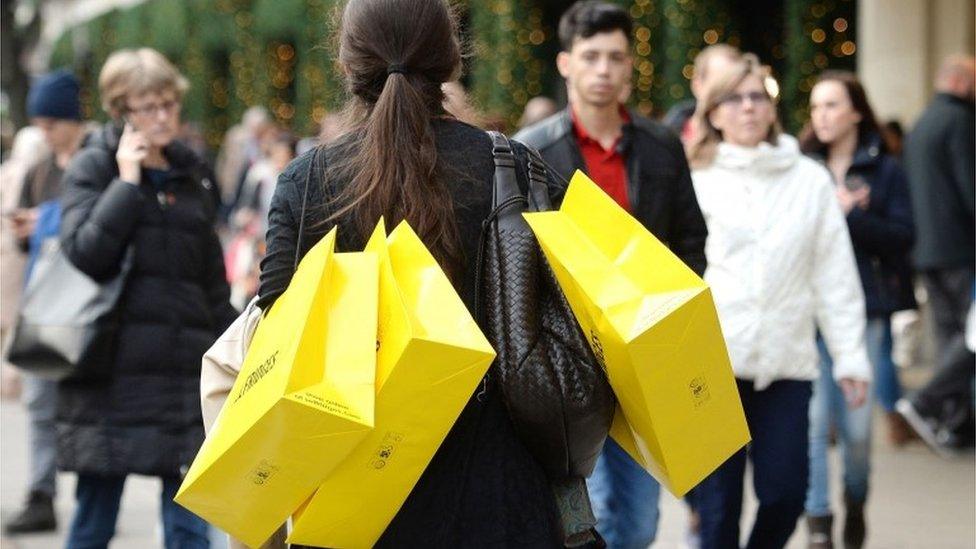
The service sector, the biggest part of the economy, grew by 0.6%
The UK's economic growth slowed in the first quarter of the year, hit by a drop in manufacturing and construction output, official figures have shown.
Gross domestic product grew by 0.4% between January and March, down from 0.6% in the fourth quarter, the Office for National Statistics (ONS) said, external.
On an annual basis, growth was 2.1%.
The 0.4% rate was in line with economists' expectations, and marks the 13th consecutive quarter of positive growth for the UK.
Part of the slowdown was due to a sharp fall in construction output, which dropped 0.9% in the first quarter. Industrial output, which includes manufacturing, declined by 0.4%.
The service sector, the biggest part of the economy, grew by 0.6%
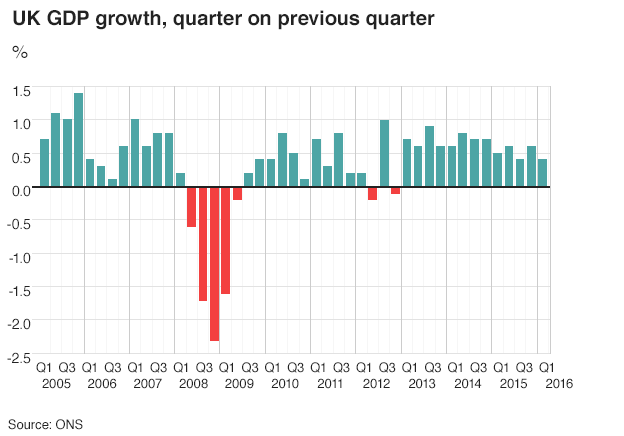
"Services continue to underpin the economy but other sectors have shown falling output this quarter," said ONS chief economist Joe Grice.
This is the first estimate of economic growth for the period, using less than half the data that will be used for the final estimate.
George Osborne: "The threat of leaving the EU is weighing on the British economy"

Analysis by BBC economics editor Kamal Ahmed:
Today's slowing economic growth figures are not all down to uncertainty about the EU referendum, although businesses I have spoken to do say that investment decisions have been delayed both by their own companies and by their customers.
In his interview with me, the chancellor says he is "the first" to admit there are other issues with the UK economy.
It would be wrong to ignore those.
Poor productivity, weak exports and falling industrial production and construction figures are more than a short term reaction to the vote on 23rd June.
They reveal significant challenges rebalancing the UK economy away from services and household consumption towards manufacturing, as well as the UK's exposure to global economic headwinds such as slower growth in China.

EU vote
The Office for National Statistics said it had no evidence for or against the slowdown being linked to the EU referendum on 23 June.
The Bank of England warned earlier this month that uncertainty due to the vote could hurt growth in the first half of this year, and the International Monetary Fund (IMF) has downgraded its forecast for the UK economy over fears of disruption if Britain votes to leave the EU.
Chancellor George Osborne told the BBC the fact that Britain was still growing was "good news", but added "there are warnings today that the threat of leaving the EU is weighing on our economy".
"Investments and building are being delayed, and another group of international experts, the OECD, confirms British families would be worse off if we leave the EU".
But economists suggested fears over the impact of Britain's exit from the EU was only partly to blame for the slowdown.
Pantheon Macroeconomics chief UK economist Saumuel Tombs said the UK's economy had been steadily losing pace since 2014, and the boost to the economy from higher household spending and rapid employment growth "had run its course".
"Concerns about Brexit likely played a role in the first quarter slowdown and they probably will take a greater toll on GDP growth in the second quarter. But the downward trend in GDP growth since 2014 suggests that the EU referendum cannot be blamed for all of the economy's ills," he added.
But Capital Economics UK economist Ruth Miller said she expected the slowdown to be temporary.
"Many of the factors likely to be to blame for the first quarter's weakness should prove short-lived. We would not be surprised if growth were to subsequently accelerate in the second half of the year, putting the economy back on track," she added.
- Published27 April 2016
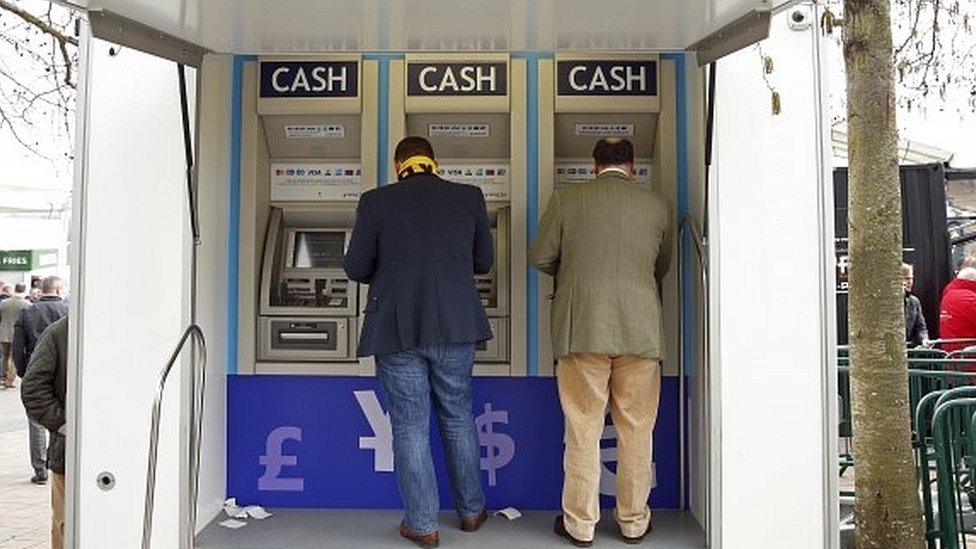
- Published21 April 2016
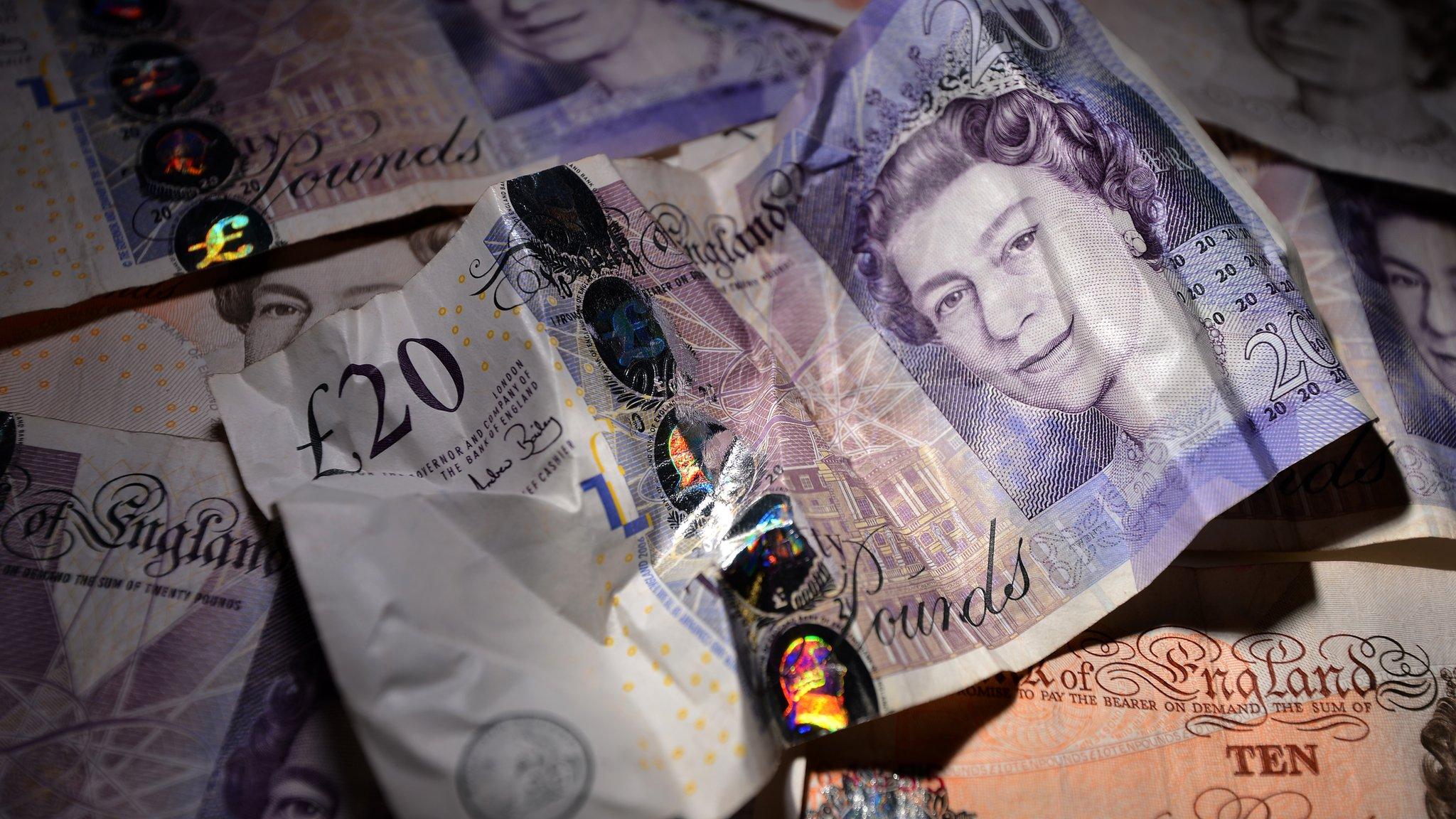
- Published11 April 2016
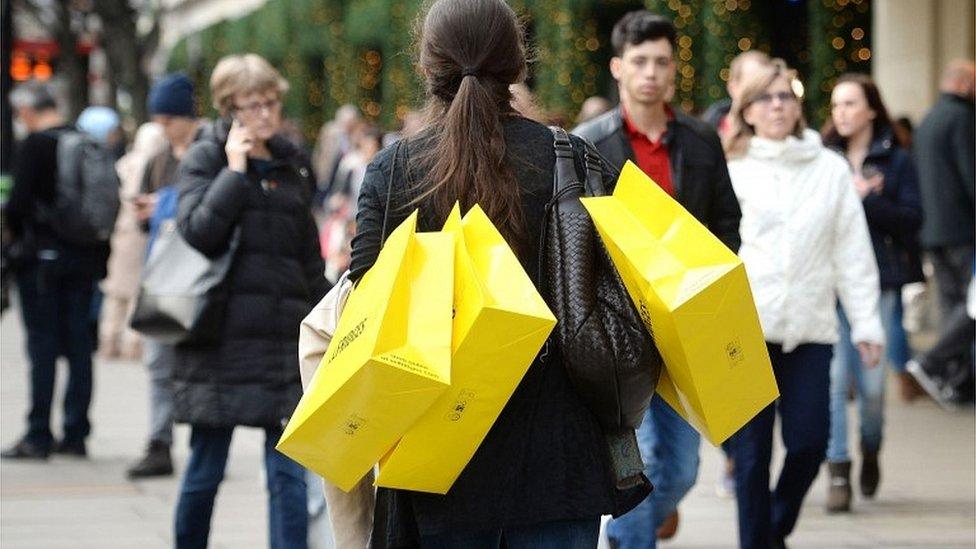
- Published14 April 2016
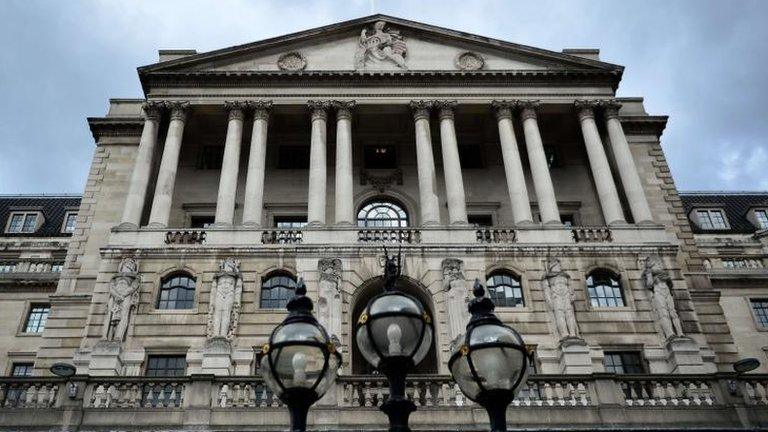
- Published26 April 2016